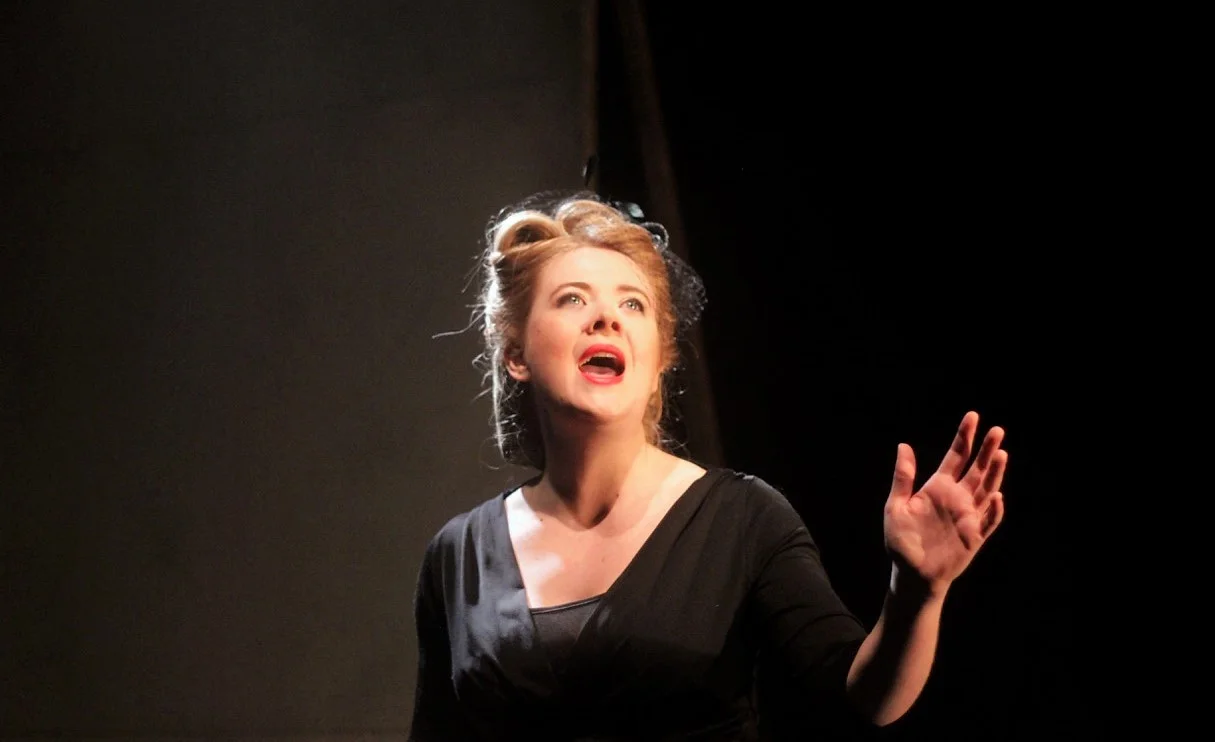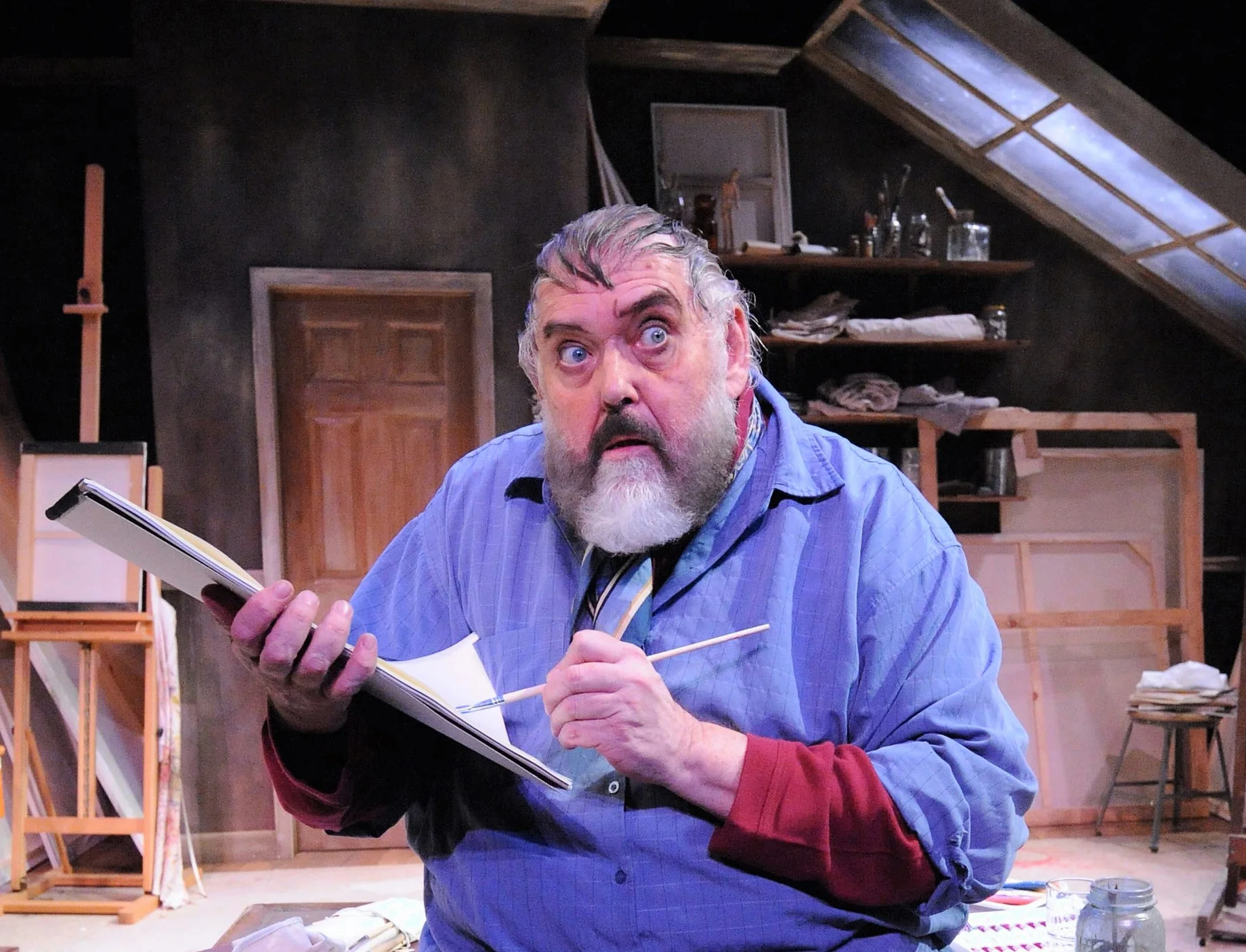The Golden Age of Hollywood conjures ideas of glamour, romance and Technicolor hues—but behind the scenes, the reality of the industry wasn’t always the rosy picture portrayed on screen. These two sides of Hollywood’s past are now being explored in The Girl Who Jumped Off the Hollywood Sign, a one-woman show that transports the audience back to the Hollywood of yore.
Harry Clarke
Billy Crudup has built a career playing charming rogues in films like Almost Famous, Eat Pray Love, and last year’s 20th Century Women. It makes perfect sense when his character is revealed as (11-year-old spoiler alert!) the real villain of Mission: Impossible III because Crudup is credible as both hero and villain; there’s always a hint of psychosis underpinning his boy-next-door looks. He’s indulged this duality in his stage roles as well (The Elephant Man, The Pillowman, The Coast of Utopia), but none has exploited the dark under his light as successfully as Harry Clarke, David Cale’s new one-man show at Vineyard Theatre.
Strange Interlude
Strange Interlude, one of four Eugene O’Neill plays to have won a Pulitzer Prize, is brilliant, magisterial, and provocative. How then, does one actor, David Greenspan, take the complex story of Nina Leeds and the four men in her life, a play that is written in nine acts and spans five hours in the telling, and deliver the highs and the lows, the strange twists of fate, the loves, and the schemes of its characters? Dressed in a dapper three-piece suit, Greenspan is alternately Nina, Charles, Ned and Sam (and three minor characters as well), maintaining an energetic, staccato presence while shifting, sometimes with gunfire rapidity, among these characters. Who would have imagined that this 1928 whale of a play could be acted as a one-man show to riveting effect? Greenspan is extraordinary, and he brings to life an extraordinary play.
Outside Paducah
Outside Paducah: The Wars at Home, a trio of monologues about the postwar experiences of veterans, focuses on the insurmountable stresses on those who have been emotionally and psychologically scarred by war. Author J.A. Moad II, who has written and performs the plays, is himself a veteran. It is, perhaps, impossible for a civilian who has never endured combat to understand what it’s like, but civilian vs. military mindsets have underpinned plays from Shakespeare’s Coriolanus to David Hare’s Plenty (1978), whose heroine Susan Traherne, after fighting for the French Resistance, thrashes about in an unfulfilling civilian life that can never excite her as much as living on the knife’s edge.
Charolais
There may be no better, or more controversial, example of humankind’s uneasy attempts to shape nature than the cow. When celeb geek Neil deGrasse Tyson recently tweeted that cows are “biological machine(s) invented by humans to turn grass into steak,” avowed vegan Moby took to Instagram to call him an “ignorant sociopath” for making light of the “unspeakable suffering” humans wreak on billions of animals a year. Irish company Fishamble’s genial Charolais at 59E59 mines this same tension for dark humor and pathos, but with a much more intimate beef, between an Irish woman and a French heifer over the man who loves them both.
Zero Hour
Zero’s back in town, and the town is jollier for it. That’s Zero as in Mostel, in the ursine form of Jim Brochu, who has brought his one-man biographical show, Zero Hour, back to the Theatre at St. Clement’s. It won him a Drama Desk Award back in 2010, and in this new incarnation, if anything, the author and star is more formidable, more unpredictable, more voluble—more Zero.
A Gambler’s Guide to Dying
There’s a famous joke about a man who prays for years to win the lottery. He tries to live a righteous life and promises to use the money for good, but his prayers grow increasingly bitter. One day, as he’s leaving church, having given God an earful, the clouds part and a voice booms, “Hey, moron, you have to buy a ticket!” A Gambler’s Guide to Dying, which launches 59E59’s 13th annual Brits Off Broadway festival this week, is about a man for whom buying the ticket is more than good advice; it’s his life philosophy.













